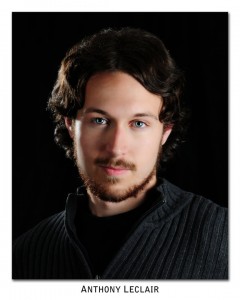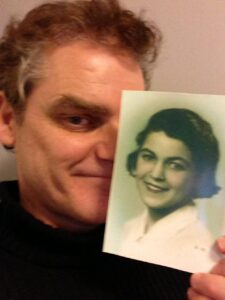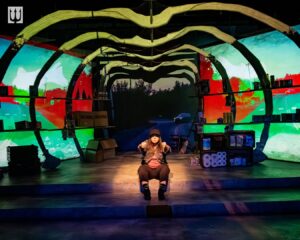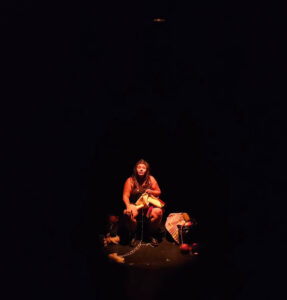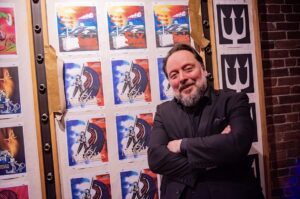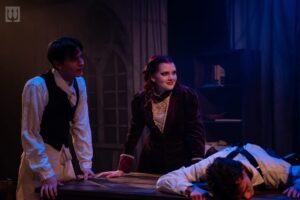In January 2012 Toronto-based playwright, Michael Healey, who had been a playwright in residence at the acclaimed Tarragon Theatre for the past eleven years, brought Artistic Director, Richard Rose, a draft of his newest play, Proud. Proud is the third play in a trilogy centering on “Canadian societal values” and it delves into the entrails of our current government, featuring a character modelled closely after Prime Minister Stephen Harper. In a March 2012 article in the Globe and Mail Healey spoke about his decision to dramatize the Prime Minister thus, ““My entire focus was to get as close to understanding Stephen Harper’s behaviour as possible, and to actually create a sympathetic character. Because I just don’t think it’s interesting to present a demonized version of somebody who I believe cares deeply about the job he’s doing.” Yet, when John McKellar, a retired lawyer and member of the Tarragon Board, raised concerns about the play being potentially libellous and defamatory to Stephen Harper, Rose decided not to produce the play, so Healey resigned and took to the public for help and support to get this new work produced elsewhere. The community rallied behind him.
Proud will be produced at the Berkeley Street Theatre in Toronto from September 20-October 6, with an amazing cast including Healey as the Prime Minister, with Maev Beaty, Jeff Lillico and Tom Rooney, directed by Miles Potter. There is a campaign set up to help this production meet its costs and at the moment Proud has reached over $16,500 of its goal of $20,000. There have been readings of Proud produced across the country in solidarity for the production which have also helped to raise money to see the play mounted in the Fall.
New Kid on the Block in Halifax, Anthony Leclair is producing the Halifax reading of Proud today, Saturday July 7th, 2012 at the David Mack Murray Studio Theatre (Studio 1) in the Dalhousie Arts Centre (6101 University Avenue, Halifax) with a cast that includes Hal Tatlidil, Wayne Burns, Sarah-Kate Marsh and Duncan Griffiths. Anthony and I met at Two If By Sea on an extremely foggy Thursday afternoon eating croissants and drinking hot chocolate. Here is a bit of what was said!
Amanda Campbell (AC): So, first thing. Do you want to talk a little bit about yourself since you’re the new kid in town?
Anthony Leclair (AL): I’m from a small town called Deep River, Ontario, in the middle of nowhere. I started in theatre just before High School, but that was all Community Theatre, and I guess somewhere in there I started to focus more on the shows I was doing than the schoolwork that I should have been doing so I decided that’s what I should go to school for. I ended up in North Bay at Canador College, which was more because of the girl I was with at the time than the school itself, but even though it was a new program, all the instructors there either had been or were working professionals. You and I were talking before about working with David Fox, and that was obviously brilliant. So, that was a three year program crunched into two years.
AC: What brings you to Halifax?
AL: A different girl. (laughs)
AC: Really? I see a pattern! A pattern is developing here.
AL: Yeah. It’s also coupled with the fact that I play music and I do theatre so I was like, “Ah! I know! I can make money doing music and then I can build up my own little theatre company!” Because I know Neptune is here, and that’s great, and it’s all the mainstream theatre stuff and then there’s 2b theatre and all the little theatres that do awesome things as well and I wanted to be a part of that and, maybe, help to build more and to present stuff that people might not ordinarily like, but to present it in a way that would make them want to go and see it. So, I figured I could make money doing music to finance theatre stuff and I thought, “Oh, that’ll be easy! Because everyone does music here!” and then I realized that I should have looked at it as, “Oh shit! Everyone does music here!” So, it’s actually not as easy as I had anticipated! (laughs)
AC: But, there’s still an avenue for that. So, for your company, are you thinking of doing plays that are written by Canadian playwrights that have been already produced elsewhere or your own original work?
AL: I have some of my own pieces that I’d like to do, but I would love to be able to focus on Canadian works because I think that’s important because Canada doesn’t have a strong sense of “Canadian culture” or “Canadian art” you know beyond, Oh, Stan Rogers. Oh, Shania Twain. Justin Bieber. You know? They’re “The Canadians” but the only reason that they’re “The Canadian artists” is because no one hears about David Fox or Michael Healey, you know? To a certain extent. I mean, obviously people hear about them but not in the way you would hear about Brangelina. I don’t have a delusion of making the celebrity system that they have in the States here in Canada and I wouldn’t want that…
AC: Yes. I sort of want there to be a little bit more, but not too much. I want people to know who Ted Dykstra is, but I don’t want them camping in his backyard.
AL: Yes, a way that you can respect these people as artists and what they do and recognize their contributions to the world around them without having to stalk them. So, yes, to answer your question (laughs) I have original works that I would love to produce, I am always writing, but I’d also like to do the work of people not just from the East Coast, but all across the country.
AC: That’s awesome. I do feel like there’s a hole right now, which maybe you have come to fill, in the Halifax theatre scene. It seems like everyone is very concerned with there not being enough East Coast theatre, so there’s a lot of people here writing their own plays, which is great. But, there doesn’t seem to be a lot of Canadian theatre from elsewhere being produced here. Neptune will bring a few shows in from other theatres, and they’re getting far better at doing that now with George Pothitos, but mostly we’ve still got a lot of the big Broadway musicals, the classics from the United States and Britain but not a lot of the Judith Thompson or Vern Thiessen or Brad Fraser or Sky Gilbert or Michael Healey plays. Even The Drawer Boy, I don’t think most people here have seen that. Maybe they’ve read it. Maybe they’ve heard of it, but it seems like unless you leave, you don’t see most of what’s going on theatrically in the rest of the country. And most people don’t leave to go on theatre trips because it’s too expensive.
AL: And where is the funding for that?
AC: Exactly. So, what made you decide that you wanted to do Proud here?
AL: Well, when I was still in North Bay, so, I left North Bay in May, I was working with people at Canadore College, I was tutoring at the program that I went to school for. I had been in Ottawa and then I went back to North Bay to do a show there and got the tutoring job, and stuck around there for awhile and Rod Carley, the coordinator of the Candore program, knew Michael from when he was working in Toronto before he came from North Bay to start the College program. So, he heard about the Tarragon debacle and everything and asked Michael if he could do a read of it, which I was originally cast for, but ended up having to drop out because I ended up coming out here. I still wanted to be a part of it because, having gone through some of the rehearsal process before I knew I had to depart, reading through it and hearing everything that had happened, I was appalled at first at the Tarragon business and regardless of who said what and all that, the fact that a show like this can’t be put up because they’re afraid of the Prime Minister coming down saying, “No, No, No, I don’t think so, we’re shutting you down” or whatever and charging you for writing a fictionalized version of this person–
AC: And there is a lot of stuff in the play that is based on facts. There are a lot of things that you can point to in the play and say, “This is actually real, this really happened.”
AL: There’s plenty.
AC: You can’t sue people for writing real things!
AL: What drove me to do it more, not only was I appalled that our constitutional right of freedom of speech was quashed—not directly or illegally– but by the fear that the powers that be would squash everyone for doing it… so, without actually saying, “You can’t do this,” the fear of it stopped them from doing it. You know what I mean? And so then, obviously, Michael left and started doing these reads starting with the one at Theatre Passe Muraille, which is a brilliant theatre. Then also, while reading it, it made me see “Harper” or “The Prime Minister” in a different light. It makes you, in one sense, hate him for what he is doing to the country but sort of makes him human. Michael puts a human face on this permanent, creepy smiling man that Harper is. He is this awkward guy that doesn’t care what other people think; he only cares about doing what he needs to do and then leaving. Which, actually, is an admirable thing, I think, to have in a leader. Someone who actually knows what they want to do. The difference is how they go about getting what they want.
AC: And what they want.
AL: And what they want, of course. The play is just so incredibly relevant. Michael talks about the fighter jets, he talks about the long gun registry. He talks about re-opening the abortion debate and so many other issues. To me, I’m not as politically charged as some of my friends are, but it matters to me. This country matters to me and what it goes through matters to me. And the fact that someone was writing this play to discuss what is going on in our country right now and the problems that we are facing with the powers of the Harper government, and that this was pushed to the side because of the fear of that government, made me want to do it even more. So, I got Rod Carley to get me Michael Healey’s email, which took awhile, and then Sue Edworthy and Michael, both on the same day, were like, “Yes! We want you to do this! Please bring us to Atlantic Canada! No one has done anything out there yet!” And they’ve done Whitehorse and Winnipeg and Barrie and Toronto and North Bay and Thunder Bay, but they haven’t touched anywhere out here. So, I was more than happy to be able to bring that out here. And, of course, BOTH OF THEM, in the same gap of time said, “And you should look up Amanda Campbell because she’ll be able to write up and review everything and she’s a great contact to have.”
AC: Well shucks. It’s interesting when you were talking, it made me think of how on Canada Day I was at my grandmother’s house and she had on the 24 Hour News Station, which is the same about ten new stories on a loop, so I had memorized all the news for the day, and I keep watching this same segment over and over “Happy Canada Day From Our Troops.” That’s so telling to me. I feel like in the media that when we’re putting our patriotic foot forward, it is always the people in the Forces they bring out to wish you a Happy Canada Day. Or, sometimes they bring out the athletes, especially since it’s almost the Olympics. It makes me wonder, where are the artists in all this? Yet, we seem to keep getting this rap that we’re so subversive, and that somehow means we’re not patriotic. And, I know a lot of people in the Canadian theatre community, and I don’t know any people who are more patriotic and who love this country more than this community. They are terrified for the future of this country and are invested in every single thing that happens here, they are reading the newspapers and between the lines and thinking and writing and loving Canada, and they are so proud to be Canadian. And I feel like the media never grabs on to that aspect of it. We’re not given the opportunity to show that by writing a play like Proud, that shows a great respect for the Canadian people, a great concern for Canada and a desire to see us reach our great potential.
AL: It’s also so interesting because, I think the “media” to some extent, are also part of that group of “artists.” I mean, if you take the CBC for example, you can’t say that there aren’t artists who are working there, and yet it’s really surprising that it is so hard to get artists promoted and presented in any sort of way there.
AC: I emailed the Halifax division of CBC Television recently and I offered to volunteer my time to go in there, to the Halifax branch of the CBC, and to do 15 minutes- TOPS- I would take 10. I would even take 5. Free! To go in and do: Amanda Campbell Presents! 15 minutes of What’s Going on in the theatre in Halifax This Week!
AL: That would be great!
AC: And they turned me down.
AL: Wow. (pause) Well, I just sent out the press release to them and every other radio station in Halifax- so we’ll see how that goes.
AC: It’s hard. It is so hard. It is easier in Toronto.
AL: That’s the thing. Sue and Michael both were like, “Yes! CBC will get in there!” And I don’t know if that is because they’re thinking of Toronto’s CBC, which is like, “Yes! Because we will support the arts!”
AC: It’s also because of what we were saying about celebrity. If you say tell CBC Producer X in Halifax “Michael Healey’s play” and you tell CBC Producer Y in Toronto “Michael Healey’s play,” Michael Healey is going to sell that to Toronto. And Producer X in Halifax is going to be like, “I don’t know who that is.” Which, is exactly why I would like to do a segment on CBC in the first place because I feel like there is a market for people to be able to learn more about the Canadian theatre so that they will know who Michael Healey is and why he is important.
AL: It’s really not that difficult for them to find out though. That’s the sad part. You just need to put his name in Google and you will immediately get all these news articles about the recent Proud debate and the readings of it from across the country.
AC: Exactly. It is a bandwagon that they should want to get on. But, I don’t think they know that the bandwagon exists. I feel like there is this prevalent attitude here that there is this big divide between the artistic community and the general public. This makes me really sad because it’s not true. We are artists and we are also part of the general public. We are the public. We are the people.
AL: We are the people who are basically in every single facet of your everyday life in some way or another. We’re just trying to do what we love also.
AC: Exactly. We are normal Canadians living ordinary lives. We are the voters, the tax payers and the public. Speaking of artists doing what they love, you have a great cast assembled for your reading of Proud.
AL: I have. Thank you!
AC: I love that you have Hal (Tatlidil) as the Prime Minister.
AL: Me too.
AC: Because he is just a completely different physical… experience than Stephen Harper…
AL: Yes. He was saying after the initial read through, that the way that Michael writes this character… Jisbella says that the Prime Minister is like a thing of mashed potatoes in a suit and Hal said, “I feel that confined just in the way Michael has written it.” Even in the beginning when he’s talking to the riding saying, “This is the way it is, we’ll do this, we’ll do this, we’ll do this.” Hal was like, “I feel I can’t express myself because I am not allowed to express myself because I have to be this way and I can’t be any other way.” But then the expression comes out behind closed doors. There’s that beautiful scene where Jisbella has just presented the anti-abortion bill and they’re having a fake fight in the office and they’re having a riot, they’re having a blast. It’s one of the most human parts for Hal to play. And he loves it too. Those are the moments where Hal can come out. And I feel like that must be how Harper must feel. That disconnect between him as the Prime Minister and him as himself. There’s a great line in the play, and obviously there’s a disconnect between this and the real person, where he says, “Oh, I have tons of integrity; I just keep it as far away from the office as possible.” And there’s all the stuff with his family, the part where he tells Jisbella, “Sorry, I can’t do this because I have a wife and a family.” He has all these human things-
AC: But then, do you remember that photo from five or six years ago of Harper sending his son off to school shaking his hand? It’s such a weird moment. It makes me think, “I don’t know if real Stephen Harper would be able to have a riot fake fight in his office.” Maybe Michael Healey is giving him more leniency than he would allow himself. … If he can’t even hug his own kid goodbye.
AL: Maybe so. That’s priceless. I have never seen that photo. But still, there’s a picture of that, it was taken out in the world or whatever. That’s not in his home. I’m fascinated by this idea of what goes on behind closed doors. It’s like he has this moral code that only applies to him when he’s at home with his family. But then, when he’s in his office, nothing matters. It’s “this is what I have to do and this is how I have to do it and that’s it.” Each of the characters in the play are wonderful. Sarah Kate is playing Jisbella and we were playing around a lot with how much of this character is actually dense and how much is actually knowing full well what’s happening. Everything is explained at the end when her son, Jake, talks about what happened. And you realize, “oh, maybe she wasn’t just this flighty, oversexed character that she seemed to be.” It seemed like all she wanted to do was get in the Prime Minister’s pants, but it had nothing to do with that, she was just trying to get what she wanted and to be able to do what she thinks is best for her and her son. It’s interesting to see how much, in each moment, she is manipulating the situation and how much is the Prime Minister catching on to that and allowing it so that he can get what he wants. It’s a constant, really touchy game of who is willing to go where to get what they want.
AC: Yes. Exactly. So, the reading is happening on Saturday? At the Dalhousie Studio 1 space.
AL: Yes. On Saturday at 7:00pm. Doors open at 6:30pm. Besides the fact that I’m proud to do it, I know that sounds corny as Hell, but I am, I hope that the people come out, it’s a read-through of the second draft of the play, I hope that it stirs up enough commotion out here that people get interested, and maybe look up some more information about what’s happening in Ottawa right now. This is a way to engage people politically again. There’s a line from the Prime Minister in the piece that says, “If we lower the debt to GDP ratio to 22% from 30%, or whatever it is, and that’s the crux of the play, that is what he is searching for, that’s his ultimate goal-
AC: His grail! The holy grail!
AL: Exactly. And if they get to that, decisions must be made. Fund this thing over that. Do this thing over that. “Debate becomes important again,” he says. I think that we don’t need a tyrant to put us there to get debate important again. I think that debate should be important now so that we don’t continue to have the problems we have now. I’m so happy that Michael wrote that and it’s ironic that it’s a line from the Prime Minister in it. But it’s so true to now. So, I hope that for this read, we fill as many seats as possible. I hope that the play gets them to think and realize that debate is important and that we should be thinking about these things and talking about them. I’m going to be doing a second read of the third draft here, I want to do it at the Bus Stop Theatre, but it’s also brilliant to be doing this read on the Dalhousie University campus because it shows that the University is not afraid to have people thinking and that they will still allow works that are controversial to be produced here. Although, this play shouldn’t be controversial. The fact that it is seen as being controversial is sad. I mean, it will get acclaim because people think it is controversial and so it should be promoted that way, because people will come to see it because it’s controversial. But, the notion of guessing what our government is up to based on fact and guessing how that works on the inside shouldn’t be controversial, that should be regular thought and things that should be asked and probed.
AC: The money that is raised goes directly to Michael Healey to help the Toronto production of Proud get produced at the Berkeley Street Theatre.
AL: Yes. I am so thankful to Michael Healey for allowing me to do this read and when I asked him if I could do a second one he wrote me back the very next day saying, “In about ten days I will have the third draft finished. I will send it to you. Please do it.” It’s so wonderful because now I don’t feel the burden of, “Oh, shit! I have to get X number of people out to make the money to send to him.” He said, send the money, whatever you can make, but it’s also understood that it’s not just about the money, it’s about raising awareness about these issues so that people think and discuss and debate and this country needs that. So badly it does.
The Reading of Michael Healey’s Proud plays at the David Mack Murray Theatre in Halifax (6101 University Avenue) Saturday July 7th, 2012 at 7:00pm. Tickets are $5.00. For more information, please visit this Facebook Page.

